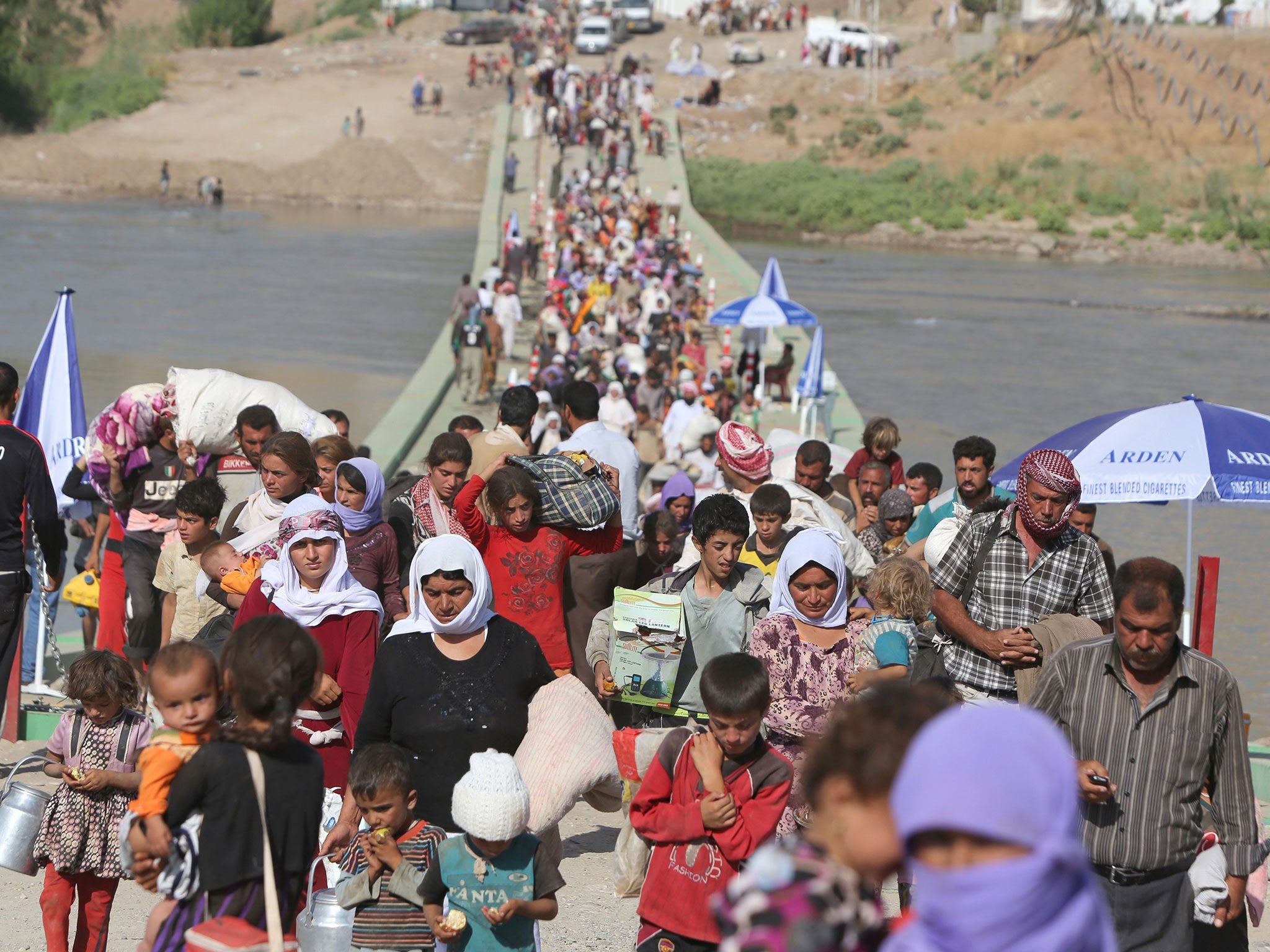Isis in Iraq: US 'far less likely' to evacuate Yazidis trapped on Mount Sinjar
The US says thousands have been evacuated and those remaining are in 'relatively good condition'

Your support helps us to tell the story
From reproductive rights to climate change to Big Tech, The Independent is on the ground when the story is developing. Whether it's investigating the financials of Elon Musk's pro-Trump PAC or producing our latest documentary, 'The A Word', which shines a light on the American women fighting for reproductive rights, we know how important it is to parse out the facts from the messaging.
At such a critical moment in US history, we need reporters on the ground. Your donation allows us to keep sending journalists to speak to both sides of the story.
The Independent is trusted by Americans across the entire political spectrum. And unlike many other quality news outlets, we choose not to lock Americans out of our reporting and analysis with paywalls. We believe quality journalism should be available to everyone, paid for by those who can afford it.
Your support makes all the difference.The US says it is “far less likely” to undertake a humanitarian mission to rescue refugees trapped on Iraq’s Mount Sinjar because there are thousands fewer there than estimated previously, and those who remain are in a better state than expected.
A team of US military personnel in charge of assessing the situation report that several thousand refuges, many of them members of the Yazidi sect, are on the mountain and that they appear to be in relatively good condition, the Pentagon said in a statement.
The UN had estimated tens of thousands were trapped on the mountain last week. Thousands are believed to have evacuated the area mountain over the past few days. The US defence secretary Chuck Hagel said air drops of food and water are helping to sustain those on the mountain and air strikes are pushing back militants and allowing refugees to leave.
"As a result of that assessment, I think it's most likely far less likely now that we would undertake any kind of specific humanitarian rescue mission that we have been planning," said Mr Hagel. "That doesn't mean that we won't."
The Pentagon said US troops and US Agency for International Development staff conducted the assessment on Sinjar. The US will continue to provide aid and assistance, it added.
"The Yazidis who remain are in better condition than previously believed and continue to have access to the food and water that we have dropped," Pentagon spokesperson John Kirby said.
"Based on this assessment the interagency has determined that an evacuation mission is far less likely. Additionally, we will continue to provide humanitarian assistance as needed and will protect US personnel and facilities."
Militant fighters from the Islamic State (Isis) have been rapidly advancing across northern Iraq, leaving thousands of people from minority Christian and Yazidi communities displaced after being issued convert, pay a tax or die ultimatums. About 1.2 million Iraqis have been displaced by the crisis, according to UN estimates.
The US has conducted seven air drops of essential supplies to those fleeing attacks and has conducted air strikes on Isis targets. Three RAF missions involving the dropping of essential supplies to the refugees have also taken place
Join our commenting forum
Join thought-provoking conversations, follow other Independent readers and see their replies
Comments